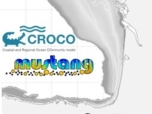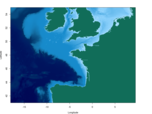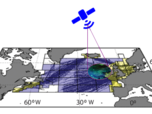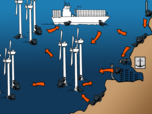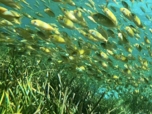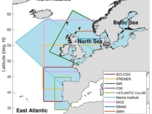Ecosystem analysis methods combining observation, experimentation and modeling
Our scientific project places great emphasis on the integration of data and models to represent the systems under study, to study how they function, to test hypotheses and rank processes, and to forecast possible changes as a function of anthropogenic and environmental forcings.
Themes :
♦ Leverage observation networks and data platforms (ROME, ILICO, JERICO, ODATIS, EMODNET) and coastal model challenges to launch projects on innovative data analysis and modeling methods (hybrid modeling, machine learning).
♦ Improve our ability to develop experimental approaches on mesocosms to test hypotheses on ecosystem evolution
♦ Maintain skills to ensure the evolution, maintenance and transfer of modeling tools developed by DYNECO, particularly in the context of the transition to CROCO.
In terms of data, our project is based on the acquisition of data at different spatial and temporal scales, many of which are part of institutional and operational strategies: high-frequency observation networks for essential physical and biogeochemical variables; multi-site low-frequency observation networks for benthos and microbial communities. Experimentation is used to test hypotheses and develop protocols for measuring and analyzing sensor data.
Statistical or mechanistic modeling is based on two complementary approaches: theory-driven approaches are based on an a priori representation of mechanisms and concepts, and use data to validate or refute hypotheses. Data-driven approaches seek to bring out a theory or understanding of mechanisms based on the assumption that data are sufficient. Thus, observational data can be used to describe and measure co-variations between heterogeneous variables, and to propose an interpretation in the form of causal relationships. They also make it possible to rank variability factors, which can then be taken into account and tested in mechanistic models or experiments.







